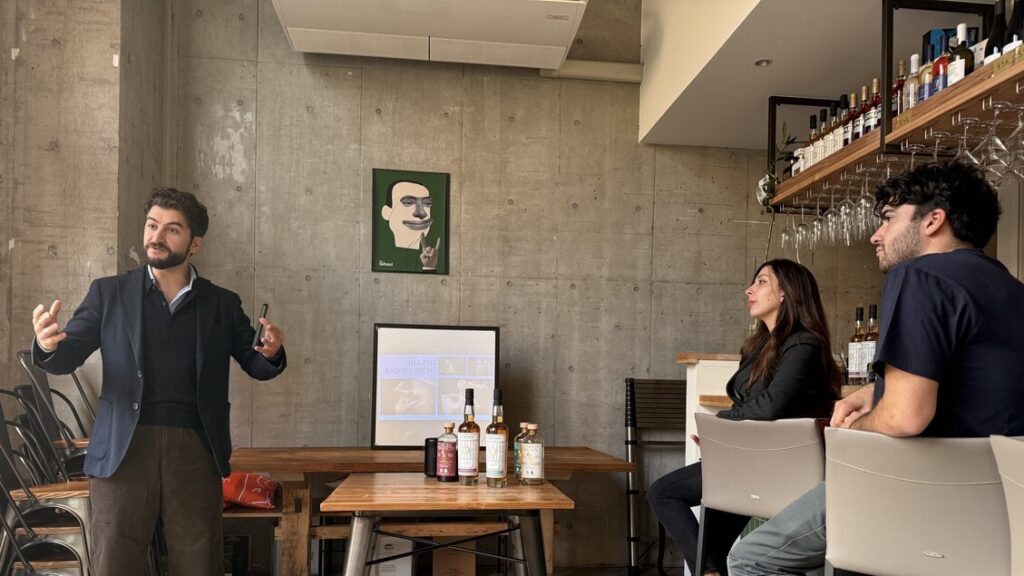New promotional activities in Japan as part of Italian Cuisine Week in the World, with a whiskey tasting set up in Tokyo for leading industry experts gathered at Bar Tafazzi in the trendy Ebisu district. “We are talking about a country, which has made whiskey one of its representative elements, despite the fact that it was not born in the whiskey world, and has taken it to levels perhaps higher than many other historical areas of whiskey production,” Enrico Chioccioli, Master Distiller and founder of the Tuscan company Florentis, tells ANSA. “It’s a people who know the product well, and as a lover of cuisine I have to say that in the types of cuisines, Italian and Japanese are perhaps the ones where I find the most similarities, because it’s a people accustomed to working on the elements of the raw material, and putting technique at the service of the ingredients.”
Created by a family that has been in the wine business for two generations, the brand stands out from others because of a specific choice related to the enhancement of local characteristics, the entrepreneur emphasizes. “Coming from a territory that talks about wine, it seemed right to us at the time when we are trying to shape the nascent category of Italian whiskey, to use “the hard skills,” that is, the main characteristics of a territory. And certainly Italy, like no other country in the world has diversification at the level of varietals, so in aging cask barrels that have contained different wines that can bring unusual nuances. Hence the choice: instead of using Sherry cask, that of employing Vin Santo cask. Both oxidative wines, but with totally different taste-olfactory characteristics.” A peculiarity that is a prelude to business consolidation-which nevertheless needs ‘bureaucratic updates’ to remain competitive in Italy, Chioccioli reiterates, where distillation activity is strictly regulated. “The first experience I had was in New York, where an opposite dynamic prevails: the stills are free, let’s say that the state accepts the risk that the company does not work properly, but at the same time it puts high penalties to prevent this from happening. So it gives a lot of freedom and confidence to the operator, and that ensures greater speed: there are no barriers to entry, you can open distilleries more easily. At the same time a lot more responsibility is required.” It is a process that Chioccioli says allows the industry to be approached with fewer obstacles, instead increasing competitiveness. “Excise tax is an important source of revenue for the state and it is right that this should be protected. However, if we want to believe that this type of business, the distillation world, can be a driving force in the economy for the country, we need to make the territory more fertile and the regulations more streamlined. So we also need to give the opportunity to those who want to enter this world not to be afraid to operate because high technical know-how is required in production, and specific technical know-how even more important in the regulatory part, because it is very strict and very complicated to know how to manage.”
These range from sealed aging warehouses to excise tax calculations that create difficulties for distillers because of the dynamics of managing the alcohol product. “I hope that one day this question will be put to the legislature, and a different form of control will be found that keeps up with the needs of the market,” Chioccioli concludes.
ALL RIGHTS RESERVED © Copyright ANSA


Dining and Cooking